How to homeschool your toddler in Singapore
We live in an age where preschools are a common commodity and 99.9% of children attend preschool by the time they’re five. This puts me, a working mom on the unpaved path of homeschooling her toddler, in the 0.01% percentile. An oddity.
And judging from the shocked expressions of the others when I tell them I don’t send my children to preschool, I’ve realised that homeschooling doesn’t cross a lot of Singaporean parents’ minds. I’ll preface this by saying that I am not, by any means, an expert in early education, but here’s how I’ve unofficially homeschooled my toddler for the last two-plus years.
Peek out other parenting articles here:
Why I decided to homeschool
I knew I wanted a Montessori school for my daughter, Ellie; but I was well aware that schools with that kind of pedagogy had fees from $1,500 per month for half-day preschool.
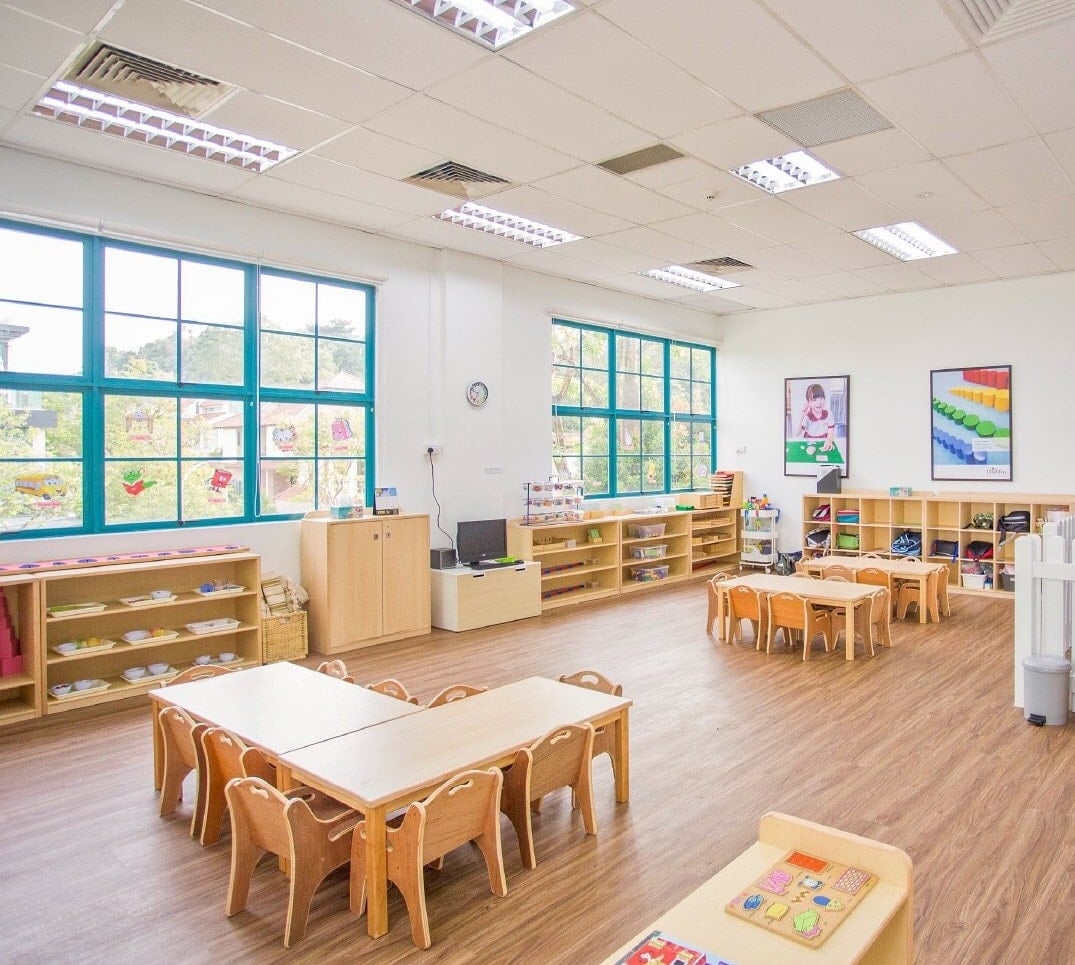
Image for illustration only
Image credit: @brightonmontessori_sg
At this point, I was already pregnant with my second child and didn’t want to cough up that much money on a monthly basis when I had other responsibilities such as a car, home and day-to-day living to account for. I was further motivated by the fact that my husband was homeschooled by his mother till the age of eight before he formally entered Primary school.
Sure, I acknowledged the benefits that came with the traditional preschool route such as socialisation, but Ellie was thankfully a social butterfly who relished every opportunity to chat up with other kids in the playground.
With ample playdate opportunities for her to check in those socialisation points, there wasn’t much to lose. I was going to give it a shot, and if it didn’t work out, I could always go back to the traditional route.
Letting learning take place organically through reading
With absolutely no experience homeschooling, I started casually teaching Ellie when she was around 18 months old. My mantra was: learning should be organic and fun. We didn’t have dedicated set hours for learning. In fact, during the initial stages when I still had to report to the office daily, our learning sessions only took place before bedtime.
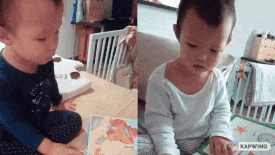
Image credit: @elliesheananigans
But as short as they were, those 30-minute to 1-hour sessions worked wonders to increase Ellie’s knowledge of the world around her. From books alone, she easily learnt to differentiate a donkey from a horse, a yak from a bull and could name at least 10 different species of birds.
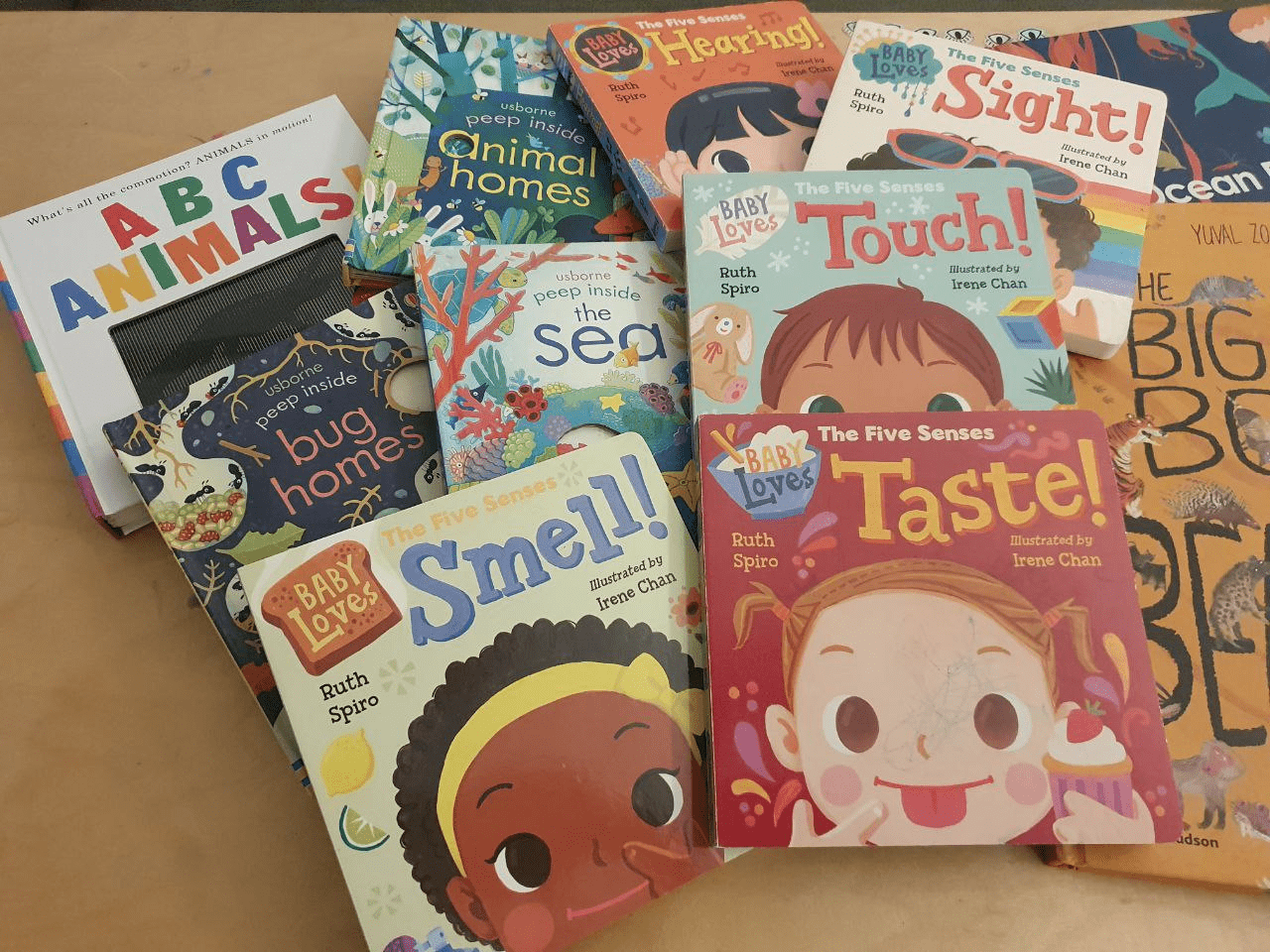
I ordered my books from sites such as Book Depository, Amazon and bookxcess.
Image credit: Kimberly Wong
Pro-tip #1: Invest in books – a lot of them. And don’t restrict yourself to buying books within your child’s age range. I started off with your typical ABC books for babies but quickly levelled up to making bulk purchases of books meant for ages four and up.
Most children’s books come with beautiful illustrations to help them better absorb those nuggets of information, but if you want to peek at the contents of a book, you can always search <Book title> Review on Google or Youtube before making your purchase.
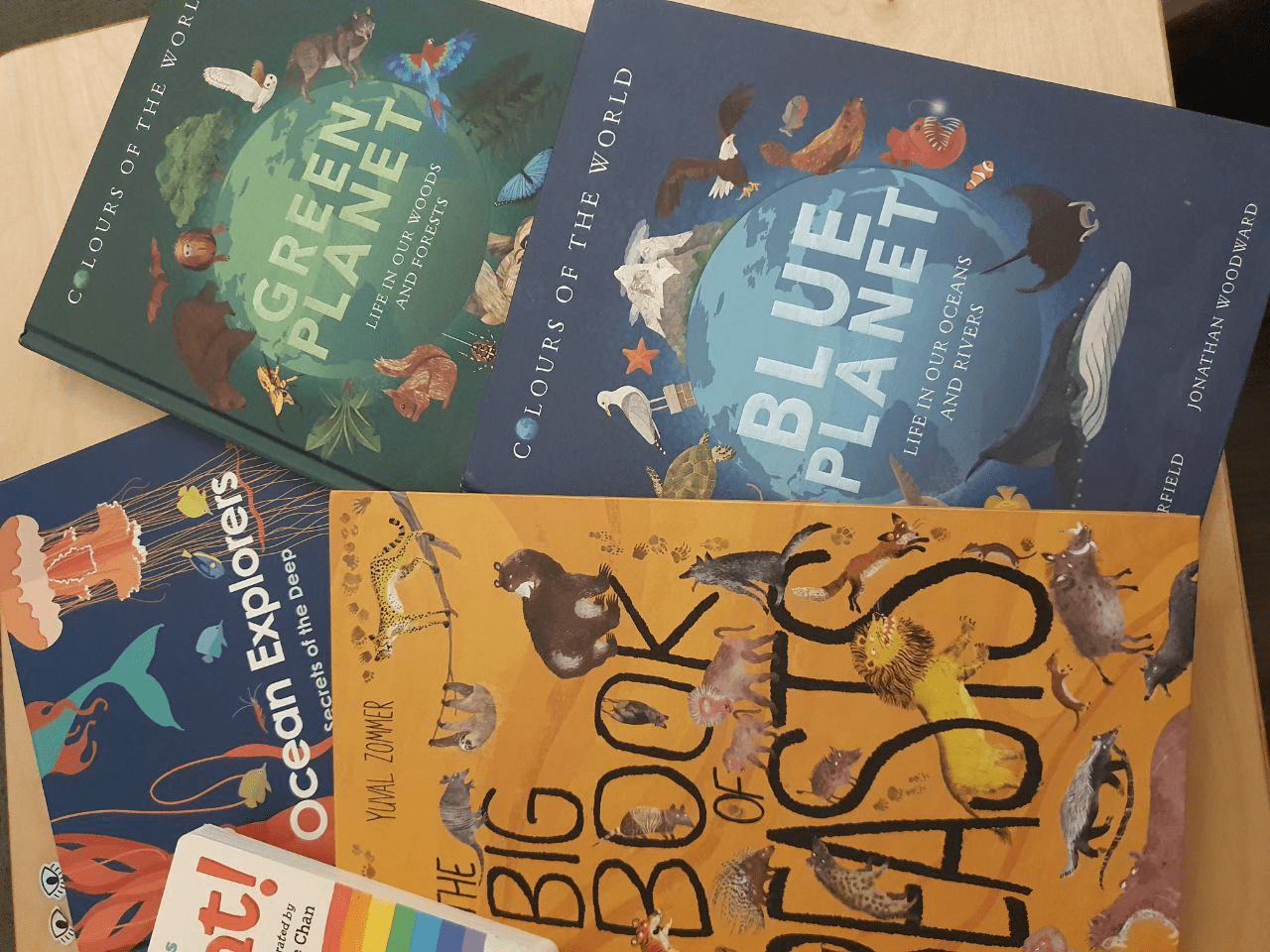
Some of my Ellie’s favourite books. She loved learning about animals, so I bought a lot of books to pique her interest.
We set aside time every night to pore through a few books that piqued her interest. All I had to do was read to her and simplify certain bits, and she’d soak the information right up.
Here are some books I’d strongly recommend:
- For the baby stage – Lift-the-flap Usborne books
- For the toddler stage – The Big Book series by Yuval Zommer
Planning a good amount of activities to help develop analytical learning, problem-solving & motor skills
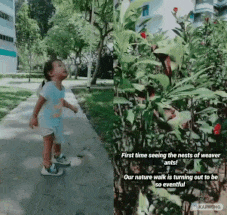
Successfully spotting lizards and weaver ant nests like the ones we’d read about in her baby books
Image credit: @elliesheananigans
Once the pandemic hit, all that time indoors spurred me to switch things up. Beyond reading, we’d hit up playgrounds around the area or head over to botanical gardens to immerse ourselves in nature and I’d deliver mini lessons depending on what we spotted.
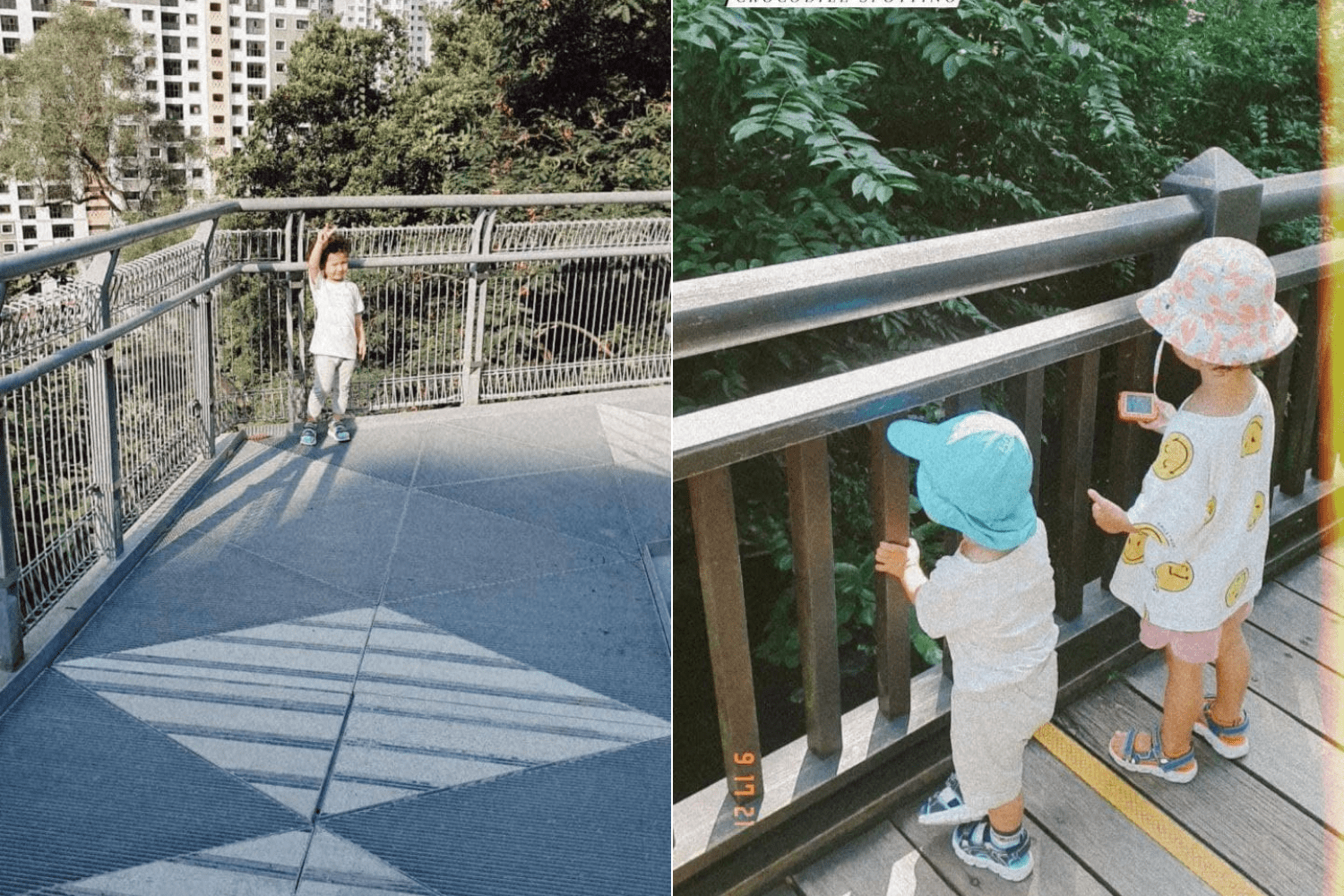
[L-R] Ellie at Southern Ridges, crocodile hunting at the zoo.
Image credit: @elliesheananigans
We’d keep a keen eye out for changeable lizards, squirrels, ant nests, butterflies – basically, whatever we could find on our nature walks. We’d learn about the process of metamorphosis by pretending to be caterpillars, freshly hatched from eggs, feasting on leaves.
At the beach we’d build sand castles, fly kites or just play. I didn’t force a lesson into every outdoor adventure but let learning happen organically. “Excursions” happened on the weekends. I’d plan trips to the bird park, zoo and kid-friendly hikes for a change of scenery.
Ellie would shoot me questions like “Why is the sky blue?” or “Can I live in the clouds?”, and I’d answer them in earnest. If there were any questions I couldn’t answer on the spot, we’d go back and look up the answer online together. Youtube videos and Nat Geo were great resources to help her visualise and lock in the learnings of the day.
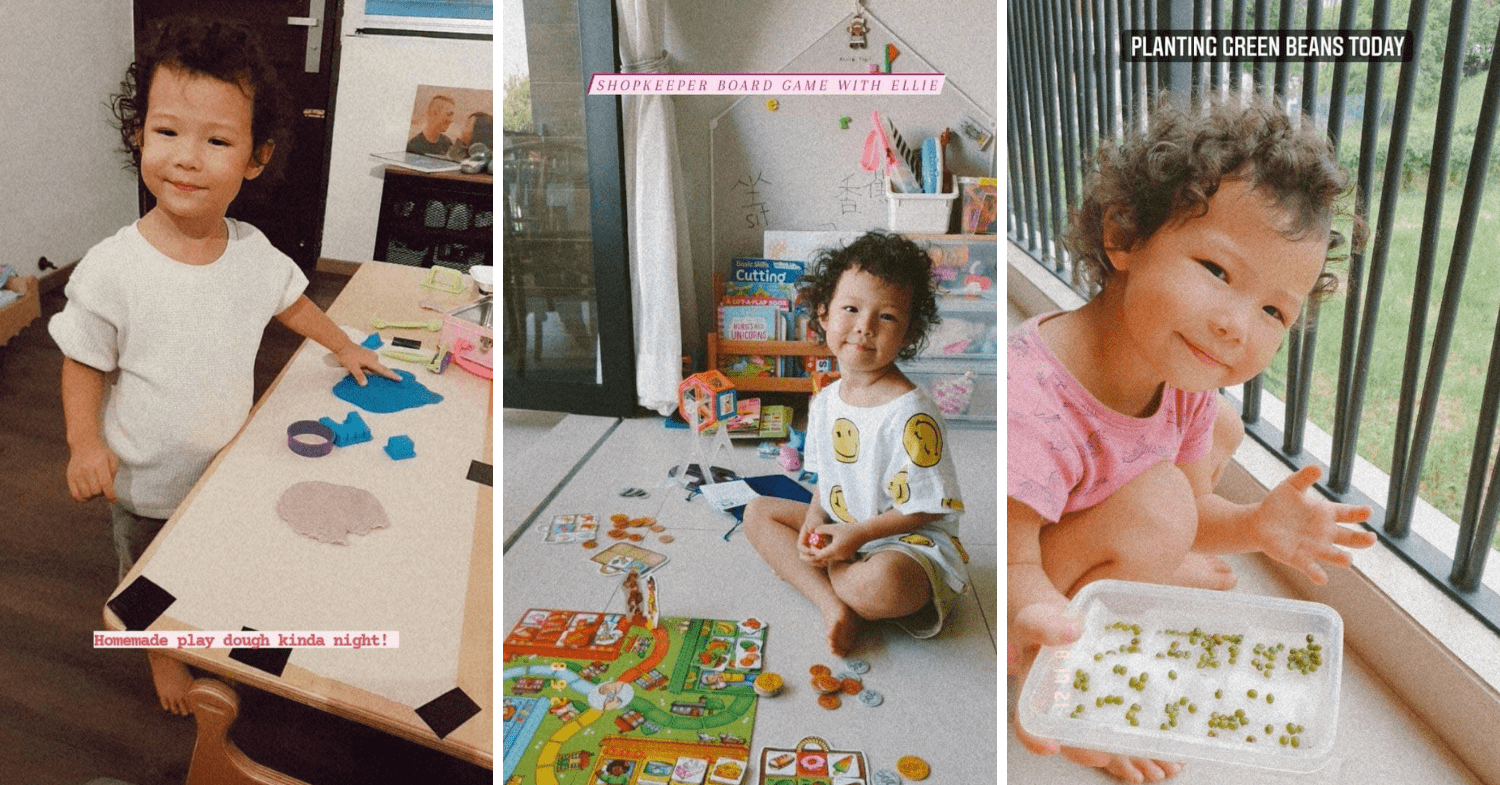
[L-R] DIY play dough night, playing a shopkeeper board game, planting green beans
Image credit: @elliesheananigans
Back at home, I’d plan smaller activity-led lessons such as making our own playdough, planting green beans, arts and crafts, and even board games to help her understand the concept of purchasing things with money.
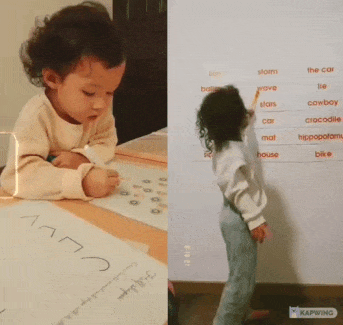
I’d purchase printable worksheets off Etsy for homework and stick sight words on the wall to help her get the hang of reading
Image credit: @elliesheananigans
We didn’t jam learning into every hour of the day, but our routine consisted of outdoor play in the mornings, an activity in the afternoon and some exercise book work at night before bedtime. And if Ellie decided she wasn’t in the mood to learn anything, we’d take a break since learning was supposed to be fun and organic.
Screen time is something we can’t entirely avoid, so when I do let her watch a little bit of TV, I make sure to put on an educational cartoon like Octonauts, Leo the wildlife ranger, AlphaBlocks and NumberBlocks.
Here are some homeschooling materials that I found helpful:
- Printable worksheets
- A magnetic whiteboard
- Sticker books and exercise books
- Sight words
- Wall pocket chart
The challenges that come with homeschooling
Sure, homeschooling comes with its fair share of challenges. On top of dealing with external pressures from family and friends to give my child a “proper education” and not “torture myself”, I had niggling doubts about whether or not I was shortchanging my daughter and not teaching her the right things, the right way.
I had the work-from-home + caregiving aspect down pat, but whenever homeschool was in session, I had to be ever-present and ever-responsive even if I’d only managed to get four hours of sleep the night before. Me time was another thing that became a rare luxury since nights were spent finishing up outstanding work or planning activities for the week ahead.
But even so, I made it a point not to be overly critical and reminded myself that even teachers and school-going children have breaks. It was completely fine if I didn’t get any teaching done some days. As long as I kept at it, we’d get there.
The unspoken joys of homeschooling your kids
We’re now two years into homeschooling , and I have no plans of stopping anytime soon. Most, if not all of my fears have been dispelled at this point because I have, and am still witnessing Ellie’s marked development every single day.
I’ve also gained newfound respect for all educators and love being looked up to and admired as a teacher. There’s something pretty fulfilling about watching your child learn and grow under your tutelage. And better yet, I get to spend a whole lot of quality time with my daughter.
Do I want to homeschool my kids forever? Most definitely not, but I’m glad to have been able to play such a pivotal role in Ellie’s fundamental development. Plus, it doesn’t hurt to have saved >$30,000 in the last 24 months.
Read our other articles on parenting here:
